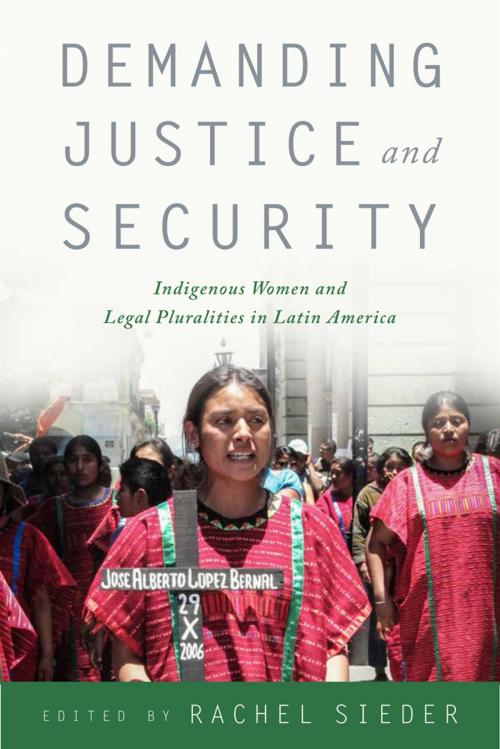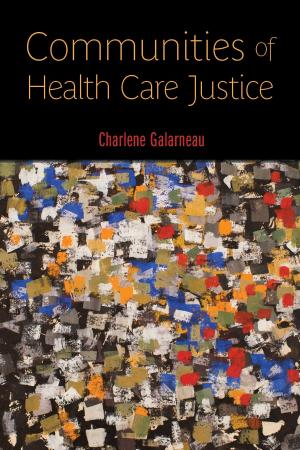Demanding Justice and Security
Indigenous Women and Legal Pluralities in Latin America
Nonfiction, History, Americas, South America, Social & Cultural Studies, Political Science, Social Science| Author: | Rachel Sieder, Adriana Terven Salinas, Emma Cervone, Cristina Cucuri, Ana Cecilia Arteaga Bohrt, Leonor Lozano, Mariana Mora, Morna Macleod, Natalia De Marinis, Rosalva Aida Hernandez Castillo, Maria Teresa Sierra | ISBN: | 9780813587943 |
| Publisher: | Rutgers University Press | Publication: | June 16, 2017 |
| Imprint: | Rutgers University Press | Language: | English |
| Author: | Rachel Sieder, Adriana Terven Salinas, Emma Cervone, Cristina Cucuri, Ana Cecilia Arteaga Bohrt, Leonor Lozano, Mariana Mora, Morna Macleod, Natalia De Marinis, Rosalva Aida Hernandez Castillo, Maria Teresa Sierra |
| ISBN: | 9780813587943 |
| Publisher: | Rutgers University Press |
| Publication: | June 16, 2017 |
| Imprint: | Rutgers University Press |
| Language: | English |
Across Latin America, indigenous women are organizing to challenge racial, gender, and class discrimination through the courts. Collectively, by engaging with various forms of law, they are forging new definitions of what justice and security mean within their own contexts and struggles. They have challenged racism and the exclusion of indigenous people in national reforms, but also have challenged ‘bad customs’ and gender ideologies that exclude women within their own communities.
Featuring chapters on Bolivia, Colombia, Ecuador, Guatemala, and Mexico, the contributors to Demanding Justice and Security include both leading researchers and community activists. From Kichwa women in Ecuador lobbying for the inclusion of specific clauses in the national constitution that guarantee their rights to equality and protection within indigenous community law, to Me’phaa women from Guerrero, Mexico, battling to secure justice within the Inter-American Court of Human Rights for violations committed in the context of militarizing their home state, this book is a must-have for anyone who wants to understand the struggle of indigenous women in Latin America.
Across Latin America, indigenous women are organizing to challenge racial, gender, and class discrimination through the courts. Collectively, by engaging with various forms of law, they are forging new definitions of what justice and security mean within their own contexts and struggles. They have challenged racism and the exclusion of indigenous people in national reforms, but also have challenged ‘bad customs’ and gender ideologies that exclude women within their own communities.
Featuring chapters on Bolivia, Colombia, Ecuador, Guatemala, and Mexico, the contributors to Demanding Justice and Security include both leading researchers and community activists. From Kichwa women in Ecuador lobbying for the inclusion of specific clauses in the national constitution that guarantee their rights to equality and protection within indigenous community law, to Me’phaa women from Guerrero, Mexico, battling to secure justice within the Inter-American Court of Human Rights for violations committed in the context of militarizing their home state, this book is a must-have for anyone who wants to understand the struggle of indigenous women in Latin America.















